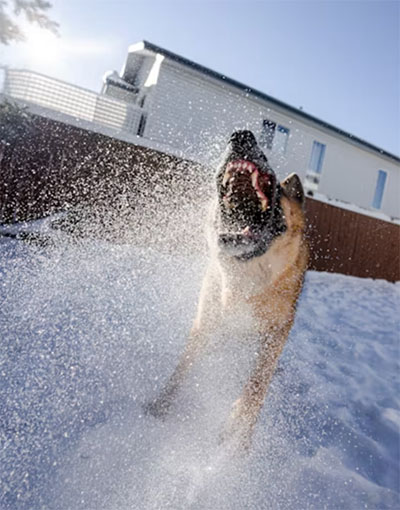Can a dog who’s tasted blood ever be trusted?
Last in a series
Birds are rather different than mammals; it’s more than feathers vs. hair. Like us, it takes a male and a female to reproduce but their sex organs are internal. Turkey toddlers all looked alike to me until they reached middle school. Little John was only a few weeks old when the far more experienced Dr. Leonard Vader gently enlightened me regarding this tyke’s sexual identity. “Doc” had practiced livestock medicine since 1951. He didn’t miss much.
Surgical skills I learned in veterinary school saved the lives of John the poodle and John the turkey but I remember struggling with the horrifying aggression that nearly ended each life. What can you do with a dog who tries to kill other animals? Would people and other pets be at risk? Can a dog who has “tasted blood” ever be trusted?
Dogs are man’s and woman’s best friends for good reasons. We share similar social behaviors like forming groups for defense of resources, raising young, and for hunting. Dogs make great pets in part because they regard us as leaders. There’s more. They love us but they are also influenced by genetically programmed survival behaviors. We put good store-bought food in their bowls but a small defenseless creature can still trigger knee-jerk predation.
The dog who almost had young turkey John for lunch wouldn’t worry me much with pets or kids. The German shepherd who attacked John the 11 year old poodle, on the other hand, may also have been predatory but in an inappropriate way. A smaller member of the same species should never have been on her menu. The sometimes erratic movements of human infants and the frail elderly could trigger the same reflex from that dog. A thorough behavioral evaluation would answer vital questions about a pet with this criminal past.
Doc and I forged our friendship during my mid-twenties. I hadn’t been raised with kindness; this man was patient and wise – the father figure I had desperately needed. He has long since passed but his wisdom and empathy live on.
For help with behavior problems, you can sign-up for a Zoom Group Conference on my website, drjeffnichol.com.
Dr. Jeff Nichol is a residency-trained veterinary behaviorist. He provides consultations in-person and in groups by Zoom (drjeffnichol.com). Each week he shares a blog and a video to help bring out the best in pets and their people. Sign up at no charge at drjeffnichol.com. Email pet behavior or physical questions to drjeffnichol@drjeffnichol.com or by US Post to 4000 Montgomery Blvd. NE, Albuq, NM 87109.


